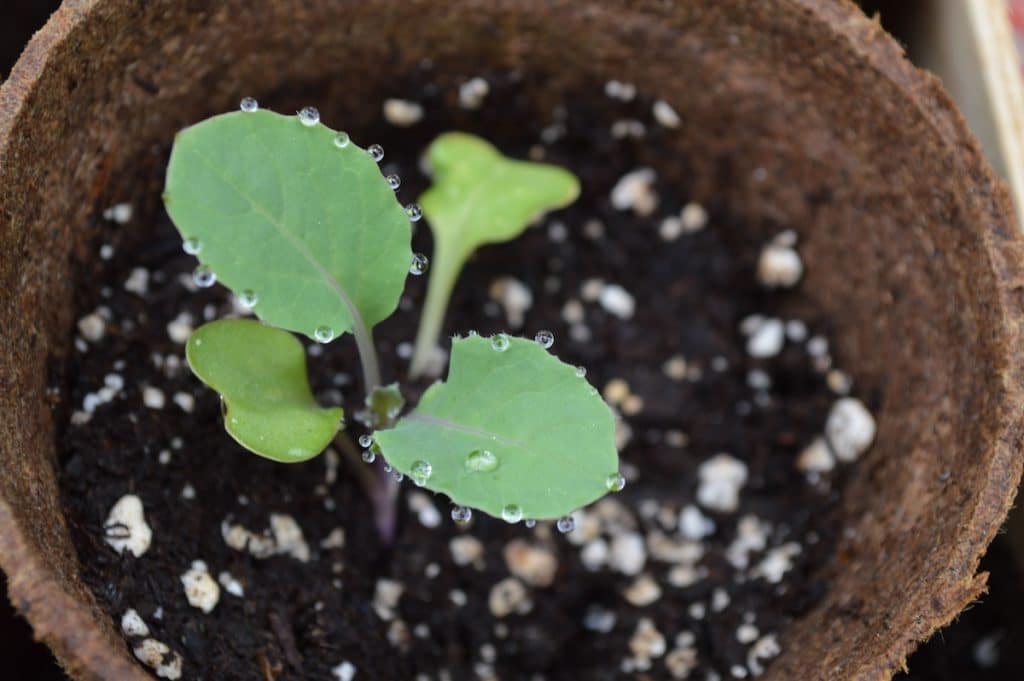If you are fond of growing vegetables in your home, then eggplants must be included in your garden! These plants look beautiful in ornamental borders, containers, raised beds and in-ground gardens. Eggplants fall in the category of vegetables that are not very difficult to grow. At the same time, it also does not mean that growing them is going to be a walk in the park. Just like any plant, eggplants will rely on you for nutrients and their safety. You will need to follow the right steps that will prove helpful during the entire process. Luckily, we know exactly what you need to learn how to grow eggplant!
Know Your Eggplant Plants
Eggplant is a very versatile vegetable. You can toast it, bake it, grill it or even fry it. In every recipe, eggplants can be cooked into a delicious meal. Once you successfully grow eggplant in your home, you will find its taste to be heavenly!
Eggplant belongs to the family of nightshade. So if you have grown tomatoes and peppers, you will have a much better time understanding the growth of eggplant. These plants come in all shades of purple and some even have white streaks on them. As a bonus, they add beauty to your garden with their striking color. Usually, eggplants are grown in warmer seasons as it also originates from Southeast Asia. That does not mean that you cannot grow them in cooler climates. Growing eggplants is always possible. However, in cool regions, you will need to provide them with extra care.

Eggplants are divided into different shapes and sizes including elongated eggplants, oval eggplants, and white eggplants. These plants can be round, curved, skinny, long, or short. As a beginner, it is better to start with the Asian elongated eggplants (ping tung long) or an oval-shaped eggplant (bonica). These verities produce small-sized eggplants and it is easier to grow and manage petite fruits. Moreover, there will be fewer chances of you ending up disappointed. Once you have enough experience, you can move over to eggplant varieties that are a bit trickier to grow.
Growing Your Eggplants
Here are some things you should keep in mind while growing eggplants in your home!
Planting Your Eggplant Seeds
- Beautiful -- Large full-color packet of Black Beauty Eggplant (Solanum melongena) seeds.
- Good Eats -- Roasted with olive oil, grilled, breaded and fried crispy, creamy eggplant and feta dip, or the classic Eggplant Parmesan, are all delicious ways to enjoy this healthy vegetable.
- Productive Crop -- Eggplant is a close relative to tomatoes and potatoes and will be a prolific producer all season.
Prices pulled from the Amazon Product Advertising API on:
Product prices and availability are accurate as of the date/time indicated and are subject to change. Any price and availability information displayed on [relevant Amazon Site(s), as applicable] at the time of purchase will apply to the purchase of this product.
Eggplant seeds grow quickly and gain size faster than vegetables like tomatoes. The first step in growing your eggplants is by buying eggplant seeds. Sow the seeds in your pots filled with soil. The plants can suffer transplant shock so do not start seeds in flats. A good option would be to plant your seedlings in special peat pots.
- SEED STARTER KIT -- Pack of 60 peat pots. Each pot measures 3 inch in diameter. Comes with 15 pcs plant labels, and you can use them to mark the seeds in your peat pots.
- START INDOOR GARDEN -- Starting an indoor garden is easy with our bulk pack of organic peat pots. Simply place your seeds into the seedling transplant pot.
- 100% BIODEGRADABLE -- Once the seeds sprout, just transplant the whole pots directly into the ground or larger plant pots. These will break down in the soil in the end, environmentally friendly.
Prices pulled from the Amazon Product Advertising API on:
Product prices and availability are accurate as of the date/time indicated and are subject to change. Any price and availability information displayed on [relevant Amazon Site(s), as applicable] at the time of purchase will apply to the purchase of this product.
Here, the soil temperature needs to be maintained between 90 and 75 degrees F. Maintaining the soil temperature will help the seed germinate in one or two weeks. It is advised that you grow your eggplant under grow lights.
- Roleadro Grow light is an infrared grow light that is great for indoor plants.
- Unique 90 degree optical lens and Eplieds 10w chips design bring higher PAR value(453umol at 18”) and Lumen output than others.
- This plant light adopted led bead and zener design instead of the reflector to ensure if one led out won’t affect others’ leds.
Prices pulled from the Amazon Product Advertising API on:
Product prices and availability are accurate as of the date/time indicated and are subject to change. Any price and availability information displayed on [relevant Amazon Site(s), as applicable] at the time of purchase will apply to the purchase of this product.
While the seeds do not require light, it is the seedlings that need it as they tend to grow and reach for the light. In the case of eggplant, it can cause the seedling to become weak. If your eggplant is growing under a grow light, it will develop shorter and stronger stems. Once the seedlings grow up to 4 inches, you can transfer them to bigger pots or containers. If you are planting eggplants, there are some products that can also help including Miracle-Gro Performance Organics and All Purpose In-Ground Soil.
- Use Miracle-Gro Performance Organics Edibles Plant Nutrition Granules to feed tomatoes, vegetables, herbs, and fruits
- OMRI listed plant food provides vital nutrients for bigger harvests
- Enjoy Miracle-Gro results with organic and natural ingredients
Prices pulled from the Amazon Product Advertising API on:
Product prices and availability are accurate as of the date/time indicated and are subject to change. Any price and availability information displayed on [relevant Amazon Site(s), as applicable] at the time of purchase will apply to the purchase of this product.
- Miracle-Gro Performance Organics All Purpose In-Ground Soil delivers up to 2X more bounty
- Use for growing vegetables, flowers, and herbs, and amending garden beds
- Feeds plants for up to 3 months
Prices pulled from the Amazon Product Advertising API on:
Product prices and availability are accurate as of the date/time indicated and are subject to change. Any price and availability information displayed on [relevant Amazon Site(s), as applicable] at the time of purchase will apply to the purchase of this product.
Moving the Eggplant Outdoors
Eggplants hate the cold, which is why you should wait for the frost to end and then plant them outdoors. Before you move your plant outside, it needs to go be gradually introduced to the new environment. In this process, first, you put out the seedlings in the sun for a short time. Over the span of 10 days, gradually increase the time duration each day. This way, your seedlings get accustomed to the upcoming change.
Watering Your Eggplant
Each plant has its own particular need for water and you need to be careful about how much you water your garden. In the case of eggplants, inadequate watering can result in a bitter eggplant. Water your plants every week with at least an inch of water. If the weather gets extremely hot, then your eggplants will need at least 2 inches of water every week. Avoid overhead watering as it can be damaging to the plant. Instead, water under the foliage. Meantime, try and create a drip system in the pot so the soil also does not stay soggy all the time.
Keep Your Eggplant Healthy

The greatest threat to your eggplant is that of a flea beetle. These beetles may look tiny but are very fast and can create holes in your plant’s leaves. These beetles are more likely to attack your plant when it is young as the leaves are not strong enough at that stage. The best way to ward off these pests is by covering your eggplants once you plant them outdoors. Because the eggplants do not mind warm roots, such containers will not harm them. Just make sure to keep them properly watered.
Another way to protect your eggplants is to plant radishes near them as flea beetles prefer that over an eggplant. Aphids also pose a threat to your eggplants. You can get rid of them by showering the plant with a sharp stream of water that can knock the pests right off. Soil-borne fungus is also fatal for the eggplants as it can cause the plant to wilt and die. To avoid that, always plant your eggplants in a premium potting mix.
Some Things to Keep In Mind
- If the weather gets colder, keep your plants in a sheltered area outside during the day and bring them inside at night.
- Keep a lookout for excessive salt buildup that can stunt your plant’s growth. After every few weeks, drench your containers with clean water to get rid of any extra salt.
- Another thing you should keep in mind is that once your eggplants are fully grown, they can pull the plant down. Because the plant grows upright, it is recommended to tie it off to stakes to keep the eggplant from falling over. Tomato cages can be also helpful in keeping the plant in its proper position.
How to Grow Eggplant – Final Thoughts
Growing plants requires effort and care. With eggplants, growing them is not as tricky as other vegetables; you just need to keep these tips in mind. Make sure that your eggplant gets adequate water and stays safe from pesticides. Another way you can boost your eggplant’s growth is by supplying it with extra nutrients in the form of organic fertilizers. Soon enough, you will have your own home-grown eggplants that will be even more delicious than the ones from a supermarket!












